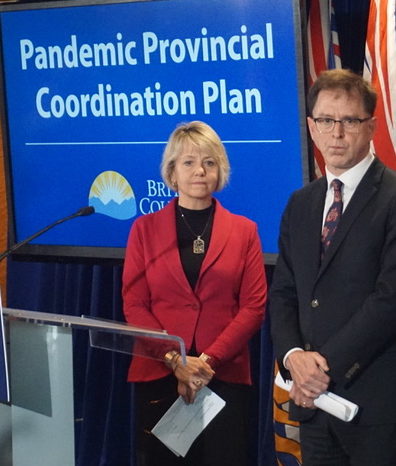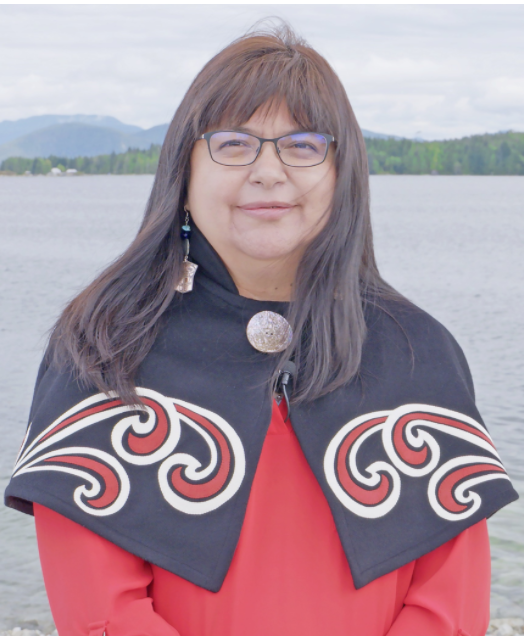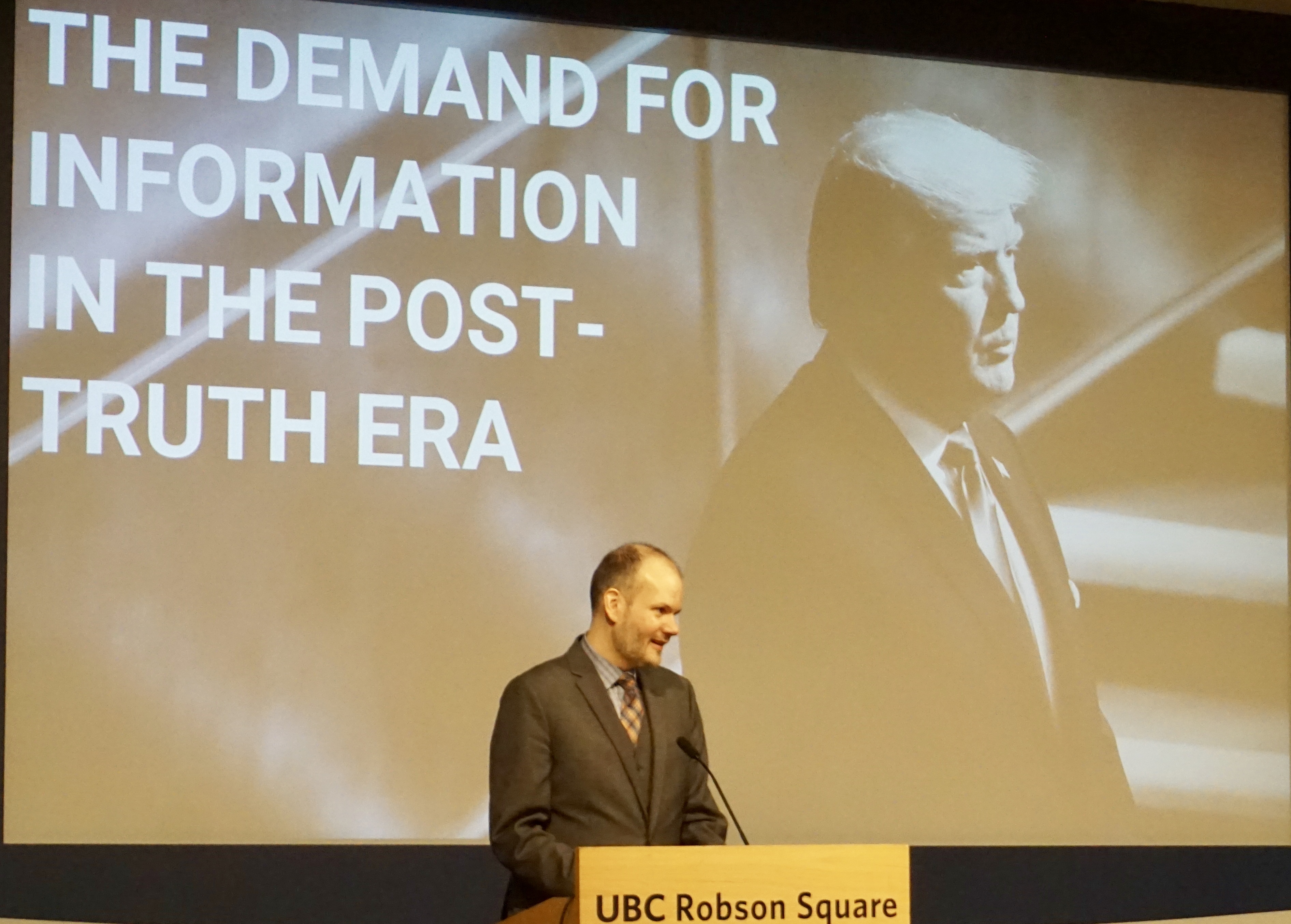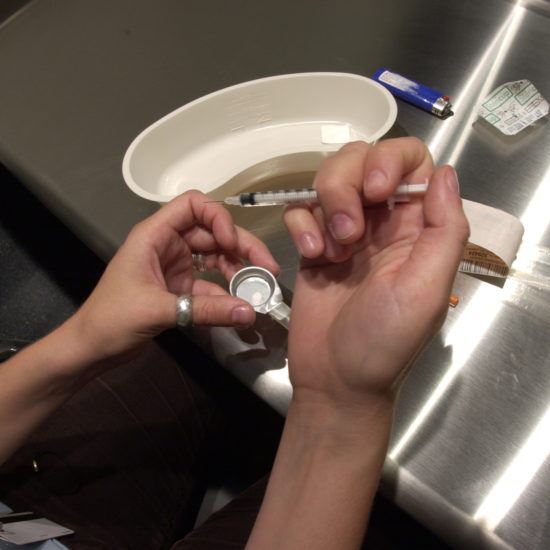
Bob Mackin
A coalition of three First Nations wants the Information and Privacy Commissioner to order B.C.’s Ministry of Health to release the proximate, anonymized locations of confirmed and presumed coronavirus cases.
A letter to Commissioner Michael McEvoy from the lawyer for the Heiltsuk, Nuu-chah-nulth and Tsilhqot’in tribal councils says the NDP government is breaking the section of the freedom of information law that requires information be released without delay if it is about a risk to the health or safety of the public or group of people.

Heiltsuk chief councillor Marilyn Slett, a Vancouver Coastal Health director (VCH)
The First Nations, fearing spread of the virus in their territories, have unsuccessfully pleaded for the information for months. They even appealed directly to Provincial Health Officer Dr. Bonnie Henry.
Notes from an Aug. 7 teleconference with Henry, released by lawyer Lisa Fong, say Henry denied the FOI law applies to her.
“The [Public Health Act] determines what information can be released and protection of personal health information; it’s the PHA I must adhere to,” Henry said.
She said she “will notify those who need to know, but also have responsibility to protect every individual’s personal health information.”
One of the complainants, coincidentally, is Heiltsuk chief councillor, Marilyn Slett, an NDP appointee to the board of Vancouver Coastal Health.
In a statement to theBreaker.news, B.C.’s former advocate for children and youth, Mary Ellen Turpel-Lafond, agreed the first nations have the right to know.
“The system currently in place does not reflect the direct sharing of accurate, timely information,” said Turpel-Lafond, who is investigating racism in the healthcare system. “Current arrangements appear to not be aligned with the recognition of the role of First Nations governments in the United Nations Declaration on the Rights of Indigenous Peoples. The B.C. government should make it a priority to ensure that this situation is rectified and that this vital information is shared with First Nations communities in the interests of better pandemic response for all citizens.”
Through his staff, McEvoy confirmed he has opened an investigation and notified the Ministry of Health.
In a 2013 report, then-OIPC commissioner Elizabeth Denham called the public interest override “difficult to apply.”
“While the grounds for disclosure are stated, the determination of what triggers an urgent and compelling need for disclosure can be open to broad and inconsistent interpretation by the heads of public bodies,” Denham wrote.
In that report, Denham found the B.C. Centre for Disease Control, Provincial Health Services Authority and Provincial Health Officer were not obliged under section 25 to immediately disclose two studies about Lyme disease to the public or an affected group of people.
“While I agree that the 2009 and 2010 studies indicated an underreporting of the disease, there is no evidence of increased incidence of Lyme disease such that there would be an urgent and compelling need to disclose either study to the public,” Denham wrote.

Dr. Bonnie Henry (left) and Health Minister Adrian Dix (Mackin)
Her report indicated the 2009 study, which was co-authored by Henry, had been delayed due to the H1N1 pandemic.
The NDP came to power in July 2017 with support from the Green Party. It has not fulfilled campaign promises to reform the law, including a pledge to rewrite the public interest override to enable more information to be shared proactively with the public.
Disclosure delays, on the cusp of an election
The First Nations’ complaint happens while the NDP government is on the verge of calling a snap provincial election for late October. B.C.’s six-month-long state of emergency was renewed for another two weeks on Sept. 15 as coronavirus hospitalizations continue to rise while government secrecy is at an all-time high.
The NDP government has already benefitted from a blanket two-month disclosure holiday granted by Commissioner McEvoy last spring. After the extension expired in May, McEvoy’s office has allowed various public bodies to delay disclosure of records until November, which would be after the election.
theBreaker.news has exclusively learned that the province’s six health authorities, which report to Minister Adrian Dix, successfully applied in late June for a 60-business day extension to requests received between mid-May and the end of June.
“Since the introduction of B.C.’s Phase 2 Restart Plan, FOI staff have been receiving COVID-19 related requests from interest groups such as media, unions and political groups,” said the health authorities’ application. “These requests are voluminous, complex and involve records retrieval from literally hundreds of sources in one instance. They also involve cross health sector engagement and coordination of requests to ensure consistency and currency of responses in a C-19 environment that is constantly changing, even on a daily basis.”
Records requested include those about PPE shortages and allocations, surgical and other care and treatment impacts, staff scheduling impacts, staff and patient safety impacts, staffing models, emergency management clinical and business decisions, restart plans and impacts, COVID-19 identification and location of positive patients, staff, families and caregivers and other related issues.
theBreaker.news wanted to know what, if any, due diligence was conducted. Did OIPC staff conduct a site visit or take statements under oath from health authority staff, before granting the delay?
McEvoy has yet to respond.

Sean Holman in 2018
In a 2018 Ontario court decision about the Toronto Star’s bid to access tribunal records, Justice Edward Morgan found delays unconstitutional. He ruled that in a system that protects freedom of the press, the media should not have the right to report on proceedings delayed unreasonably.
“Just as justice delayed can be justice denied, so reportage delayed can be reportage denied,” wrote Edwards.
Last week, the NDP government announced a $1.6 billion increase to the Ministry of Health budget, but it did not include any boost for FOI offices.
In May a coalition of whistleblowers and government transparency advocates issued a white paper that was critical of various Canadian governments, including B.C. The Canadian COVID-19 Accountability Group called the current approach “secretive and paternalistic” and recommended immediate reforms.
The group includes Sean Holman, a journalism professor at Mount Royal University in Calgary and a former member of the B.C. legislature press gallery. During an appearance on theBreaker.news Podcast, Holman said it is crucial for governments to operate openly in a crisis.
“We are in a democracy, we are not in a dictatorship,” Holman said.
“If people can get a better sense about how much infection there is in their local geographic area, they can act accordingly and we really do want people to, in this time of crisis, be acting in accordance to the risk around them. We want people to be self-isolating, we want people to be socially distancing, we want people to be thinking about the larger community, as opposed to thinking about their own individual safety. By disclosing that type of information, we can allow for those kinds of measures.”
READ BELOW: Health authorities complain about transparency obligations.
Support theBreaker.news for as low as $2 a month on Patreon. Find out how. Click here.
F20 0691 Blackline Mackin by Bob Mackin on Scribd











